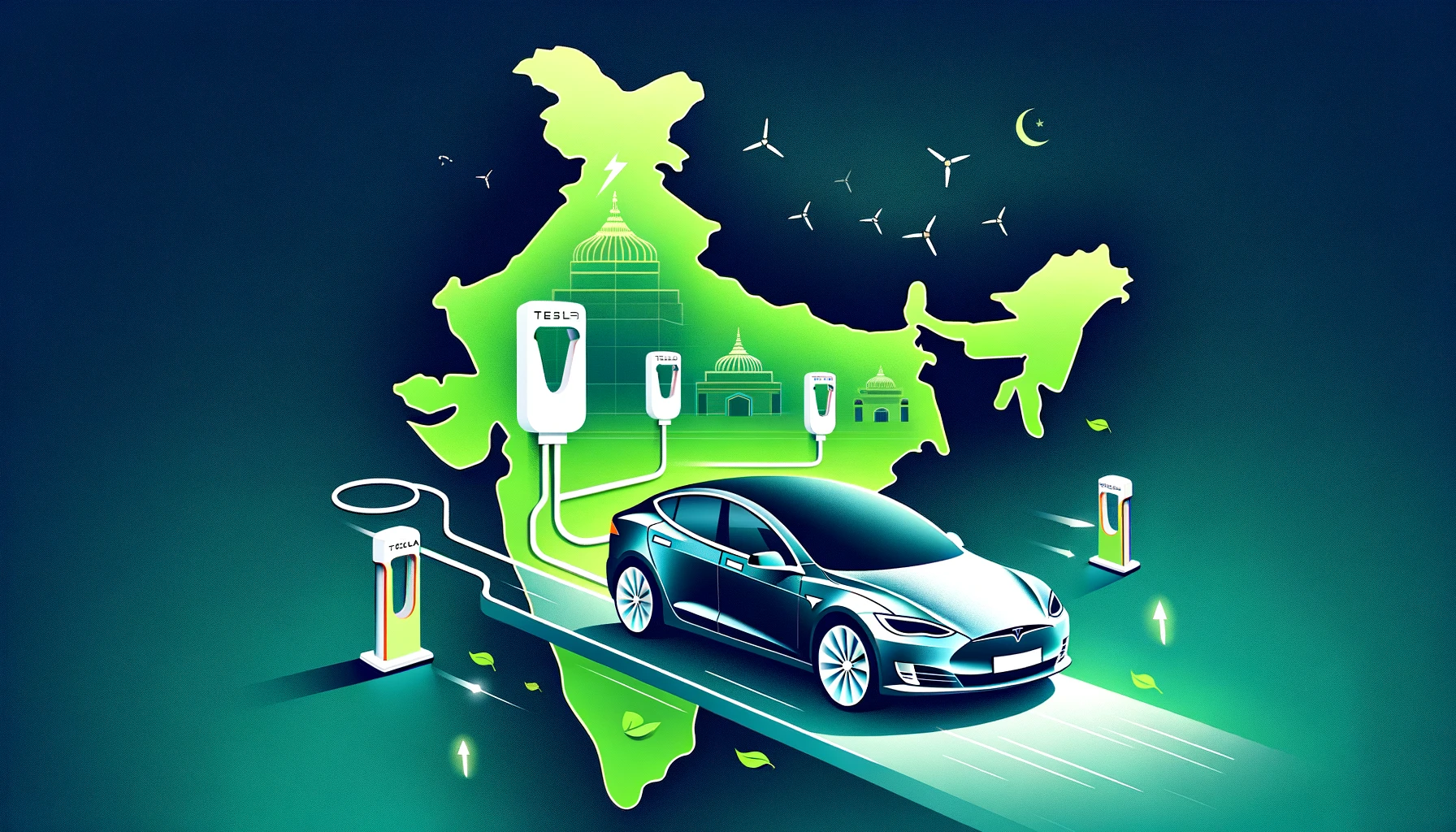
In a strategic move to accelerate the adoption of electric vehicles (EVs) and stimulate local manufacturing, the Indian government has announced a significant policy shift that could reshape the South Asian automotive landscape. By lowering import taxes on certain electric vehicles for companies that commit to substantial local investments and setting up manufacturing facilities, India is not only targeting an environmental shift but is also positioning itself as a major player in the global EV market.
Among the international beneficiaries of this policy, Tesla, led by CEO Elon Musk, stands out. The American electric vehicle giant has long sought a pathway into the Indian market, hindered by high import duties that made its foray financially unviable. With the new policy, Tesla’s entry into India seems not only possible but probable.
- Investment and Local Manufacturing: Companies aiming to benefit from reduced import duties must invest a minimum of $500 million in India and establish a local manufacturing facility within three years. The policy mandates that at least 25% of the EV components be sourced domestically.
- Import Tax Reduction: Eligible firms will enjoy a reduced import duty of 15% on EVs priced at $35,000 and above, a significant cut from the current 70% to 100% tax. This concession allows for the import of up to 8,000 EVs annually under the reduced tariff.
- Extended Benefits for Larger Investments: Firms investing $800 million or more can import up to 40,000 EVs, capped at 8,000 units per year, under the same reduced duty.
The policy is designed to not only attract foreign investment but also to bolster India’s “Make in India” initiative. The benefits are manifold:
- Technology Access: Indian consumers will gain access to the latest EV technology.
- Economic Impact: Encouraging local manufacturing and component sourcing will stimulate the domestic economy, potentially leading to job creation and technological advancement.
- Environmental Benefits: The push for EVs aligns with global efforts to reduce carbon emissions and combat air pollution, particularly in urban centers.
- Reduced Oil Dependency: By promoting EV adoption, India aims to cut down its hefty oil import bill, thereby improving its trade deficit.
Tesla’s Strategic Moves
Tesla’s strategy involves initially importing EVs from its Shanghai facility, with plans to shift manufacturing and battery production to India in the coming years. Analysts from Bank of America anticipate Tesla’s entry with a sub-$25,000 model to make its offerings more competitive against local and international brands.
Despite the favorable policy, Tesla and other entrants face the challenge of India’s price-sensitive market, where the majority of cars sold are priced below $15,000. This economic reality may steer Tesla to use India as a base for exporting vehicles to other markets, particularly Southeast Asia.
Tesla aims to double its automobile component sourcing from India, targeting $1.7 to $1.9 billion in 2023, up from $1 billion in 2022. This move signifies Tesla’s commitment to integrating into the Indian automotive ecosystem.
- VinFast: The Vietnamese electric carmaker announced a $2 billion investment in India, with plans for a 400-acre facility in Tamil Nadu, marking its entry into the market.
- Lotus Cars: Owned by China’s Geely, Lotus Cars entered India by launching its electric SUV, Eletre, through a local partnership.
Challenges and Local Resistance
Despite the optimistic outlook, the road ahead is fraught with challenges. India’s market is predominantly driven by two-wheelers, and local carmakers like Tata Motors and Mahindra & Mahindra have a vested interest in curbing the expansion of global players. The policy, while attractive, must navigate the complexities of India’s automotive sector and its cost-conscious consumer base.
| Requirement | Benefit | Additional Notes |
|---|---|---|
| $500 million investment | Reduced import duty of 15% | Applies to EVs priced at $35,000 and above |
| Local manufacturing setup | Import limit of 8,000 EVs annually | Must source at least 25% of components domestically |
| $800 million investment | Import up to 40,000 EVs (8,000/year limit) | – |
India’s new EV policy represents a pivotal moment for the automotive industry, both domestically and internationally. By providing significant incentives for global players like Tesla to invest and manufacture locally, India is not only aiming to reduce its environmental footprint but also to become a major hub in the global EV market. The coming years will reveal the effectiveness of this policy in attracting foreign investment, stimulating local production, and ultimately, achieving India’s ambitious goals for electric vehicle adoption.
Related News:
Featured Image courtesy of DALL-E by ChatGPT
